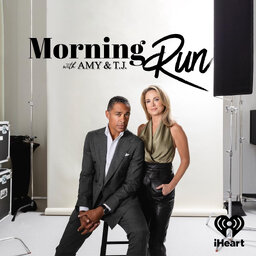True Crime Junkies with Marcia Clark
In 1995, she was a household name when she served as lead prosecutor during O.J. Simpson's Los Angeles trial. Today, Amy and T.J. are turning the tables asking her the hard hitting crime questions you want to know.
Marcia Clark reveals why Diddy will have an uphill battle in court, her honest thoughts on O.J. Simpson's death and how working on one of the most famous trials has affected her mental health.
Listen to Marcia Clark's new podcast "Informants: Lawyer X", available now exclusively on Wondery+
In 1 playlist(s)
Amy & T.J.
"Amy & T.J." is hosted by renowned television news anchors Amy Robach and T. J. Holmes. Hosts and e…Social links
Follow podcast
Recent clips

NEW: Ilhan Omar Assaulted at Town Hall; "Staged" Immediately Becomes Trending Topic
22:17

Is Your Relationship With Food, Affecting Your Relationship?
17:37

Morning Run: Hope For Minneapolis, Storm Death Toll Surges, Ex Olympian Arrested, Ye Says Sorry, Doctors Defy CDC and Google May Owe You $$
17:07
 Amy & T.J.
Amy & T.J.